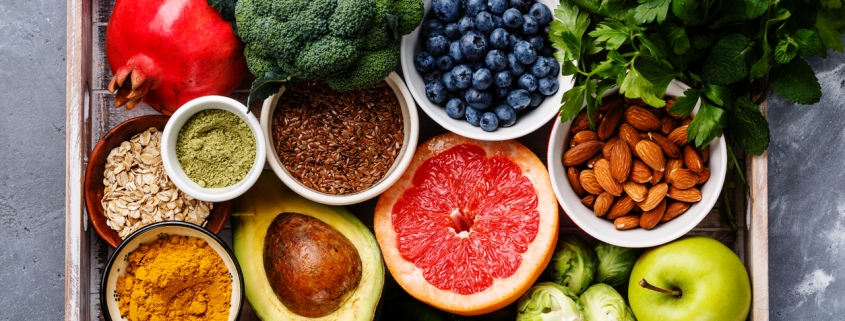Healthy Inside and Out: How Diet and Lifestyle Impact Colorectal Cancer
Diet and lifestyle play a large role in colorectal cancer (CRC) prevention and prognosis. Dietary factors such as consumption of meat, sugary drinks, and alcohol, and lifestyle factors such as western diet patterns, being overweight or obese, physical inactivity, and smoking can add to the risk of CRC.
Diet and the Risk of CRC
A systematic review of multiple research studies has shown that a diet high in red and processed meats and low in fiber is a prominent risk factor for CRC and can lead to DNA damage, gut epithelial damage, cell proliferation, and genotoxicity from the nitrates that are added as a preservative. A diet high in red meat and processed food can be damaging for CRC patients and survivors and can increase the risk of mortality.
Including fiber, vegetables, and fruits in the diet is definitely healthy and can also prevent CRC. The Mediterranean diet—which includes fruits, vegetables, fish, and whole grains is a healthy preventive option to adopt in your food habits.
Research also points to a significant relationship between the consumption of processed meat and the development of early-age onset CRC (EAO-CRC), which developed among those younger than 50 years. A rapidly rising cancer across the globe, about 20% of EAO-CRC cases can be attributed to family history, and the remaining to other factors including diet and lifestyle.
- Consumption of two or more sugary beverages per day doubles the risk of developing EAO-CRC in women
- An increase in consumption of sugary beverages in adolescence is associated with a 32% increased risk of developing EAO-CRC
- Consumption of sugary drinks is also known to increase the risk of mortality in CRC patients
- Alcohol consumption (greater than 14 drinks per week) also increases the risk of developing CRC.
Lifestyle Habits and the Risk of CRC
It is a well-known fact that a healthy lifestyle promotes health and well-being, while an unhealthy lifestyle can lead to health problems. Physical activity is important for overall health and studies point to physical inactivity and a sedentary lifestyle as major risk factors for CRC. Women who reported little to no physical activity after the age of 20 had a heightened risk of developing EAO-CRC.
Reduced physical activity can contribute to several different health problems, the most evident being obesity. Obesity modifies the gut microbiota leading to an increase in inflammation that damages the intestinal barrier. Obese and overweight individuals have a 42% higher risk of developing EAO-CRC than those at a healthy weight (an individual is considered to be a healthy weight if their BMI is between 18.5 and 24.9). There is also a correlation between obesity and the development of metabolic syndrome, which is a combination of multiple conditions that increase the risk of heart disease, stroke, and diabetes. Metabolic syndrome has been identified as a leading comorbidity in the development of EAO-CRC.
Smoking is also a significant risk factor in multiple cancers including CRC. Current smokers are at a higher risk of developing EAO-CRC, while past smokers may find their risk reduced.
It is important to understand the significant role of diet and lifestyle in disease development. Maintaining a healthy diet, such as increasing fruit, vegetable, and fiber intake as well as decreasing one’s consumption of red meat, processed meat, and sugary beverages can prevent CRC. This, coupled with a healthy and active lifestyle can significantly reduce the risk of developing CRC.
Abigail Parker is a Colon Cancer Prevention Intern with the Colon Cancer Foundation.




Leave a Reply
Want to join the discussion?Feel free to contribute!